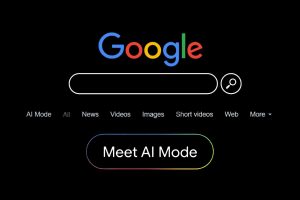The presence and impact of artificial intelligence in our lives may not seem that prominent to humans without ruminating about it. In reality, however, our daily lives have been majorly influenced by the presence of artificial intelligence. From cleaning robots that reach every nook and corner of your home helping you clean to self-driving cars, they are not just an imagination anymore.
We all encounter artificial intelligence every day in our lives, from the digital gadgets we use to the recommendations on online shopping to what movies or shows we would like to watch. Artificial intelligence is hence a reality that needs to be learnt in-depth for its appropriate usage. But what are the definite advantages of AI and what are the challenges AI has? While we hear of AI almost every day, we do not have a comprehensive knowledge of its power and disadvantages.
In this blog let us discover the advantages of artificial intelligence to find out more about what benefits it can enrich us with. We will also learn about the disadvantages of Artificial Intelligence to be able to identify the differences between its positive and negative impacts.
Advantages of Artificial Intelligence
-
Reduce Human Error
The human race at large is handicapped with the tendency to make errors. This happens as humans are limited to certain capabilities. They make errors unconsciously or consciously, out of exhaustion, etc. In contrast, computer and AI-powered machines do not make errors as they are able to perform limitlessly without wearing out.
They work on the tasks they are programmed to perform. In AI, a certain algorithm set operates to make decisions by using information gathered beforehand. Hence, there is a lower chance of error occuring and have greater possibility of attaining higher accuracy making this factor one of the best advantages of Artificial Intelligence.
-
Capable of taking risks
This again is one of the most significant advantages of Artificial Intelligence. The usage of AI robots and machines can help manifolds in performing tasks that are risky for humans. AI machines and robots are powered to perform even risky tasks and can be effectively used to explore boundaries and activities that are dangerous for humans.
-
Available 24×7
This is another great advantage of AI. While humans can only work up to a certain time, like 4 to 6 hours a day, AI machines are limitless in this regard. Humans require break time and rest to refresh themselves to start anew the following day. AI machines on the other are capable of performing without rest or taking breaks. They can perform without getting exhausted or bored in contrast to their human counterparts.
-
Faster Decisions
Another one of the biggest advantages of artificial intelligence is its capacity to provide quick solutions. The integration of AI in machines results in carrying out actions quicker and arriving at decisions faster. While it takes time for humans to come to a certain decision as it takes time to analyze multiple factors at a time, AI machines can easily and smoothly perform these tasks without taking time.
While those are the top advantages of artificial intelligence, in order for us to identify and differentiate between the good and bad sides, let us also delve into the various disadvantages of artificial intelligence.
Disadvantages of Artificial Intelligence
-
Expensive to Develop
AI is a constantly improving and updating technology that requires hardware and software to be constantly updated aligning with the latest trends and innovations. To make the machine run smoothly, it needs constant repairing and monitoring as well. These are actions that require a good amount of investment and are costly. Its development demands massive costs and is a very complex machine. This is one of the biggest disadvantages of artificial intelligence.
-
Makes Humans Lazy
Another biggest disadvantage of AI is how its usage can make humans lazy. As AI machines have the capacity to automate jobs and perform with accuracy humans tend to become exclusively reliant on AI’s capacity and may become addicted. This may cause a huge problem for the future generations.
-
Unemployment
AI in general is replacing most of the tasks that are repetitive and tedious and with the introduction of robots that can perform like humans and even surpass humans, this results in lesser human interference to the tasks which may lead to the loss of such jobs and unemployment. Firms and organizations are mitigating costs in running their organizations hence they are looking forward to replacing a number of employees by investing in a single machine that can perform the task of for instance 10 humans with higher efficiency.
-
Absence of Emotions
This is another major disadvantage of artificial intelligence. They lack emotions and do not understand human emotions just as their human counterparts. Hence, they are not a good driver for building business collaborative bonds that fundamentally need human emotions.
-
Lacks thinking out of the box
AI machines do not possess the power to be creative and think on their own. They do not possess critical and out-of-the-box thought processes, making them limited tools.
Every technological innovation surely offers remarkable services yet they also have limitations. Those are some of the top advantages and disadvantages of AI.
In conclusion,
artificial intelligence offers tremendous advantages, such as efficiency improvements and innovation, but it also poses challenges, including job displacement and ethical concerns. Striking a balance between harnessing AI’s potential and addressing its drawbacks is essential for a responsible and sustainable integration into our society.












